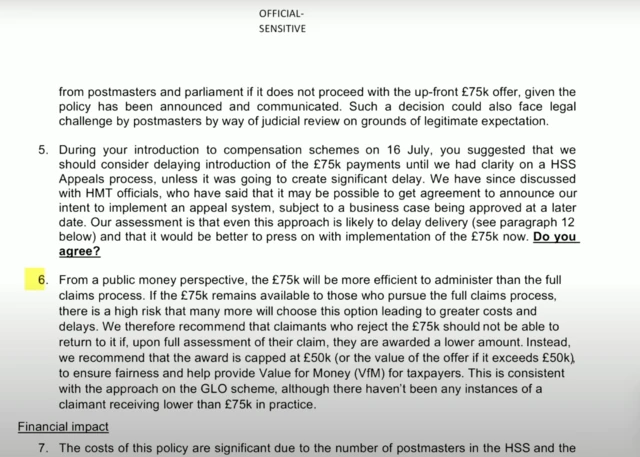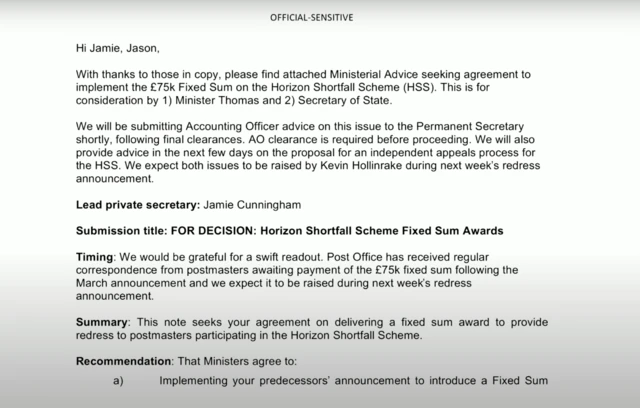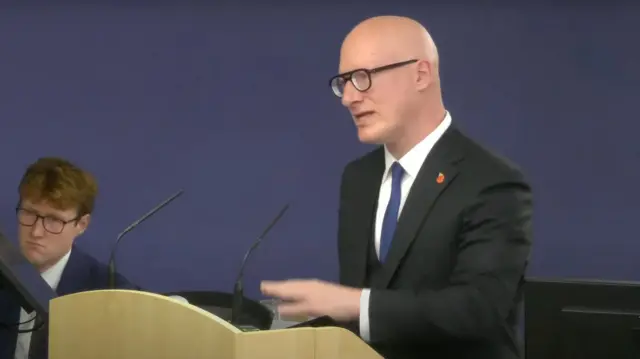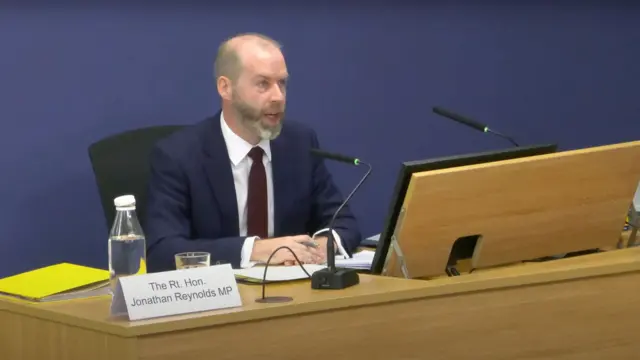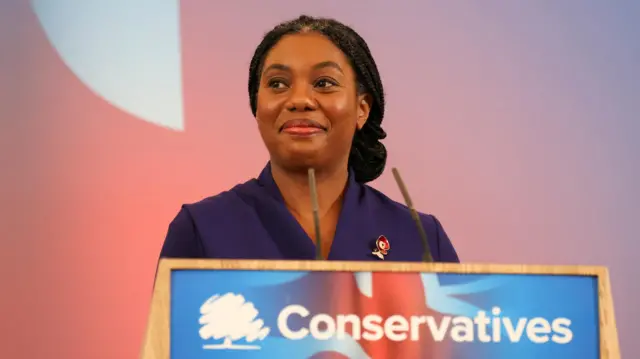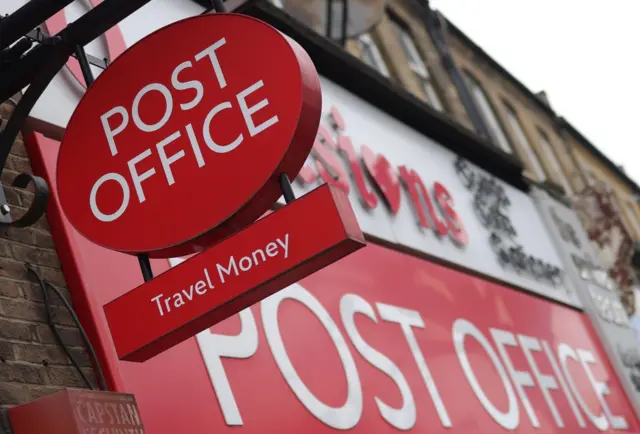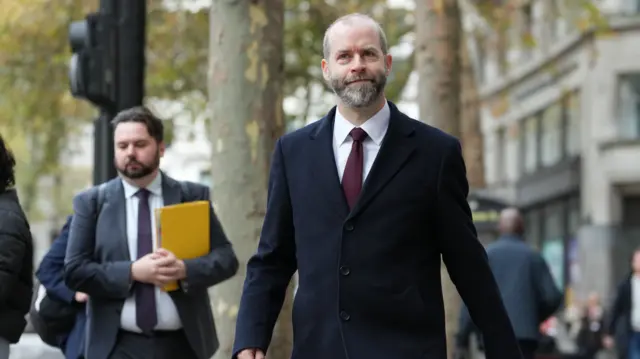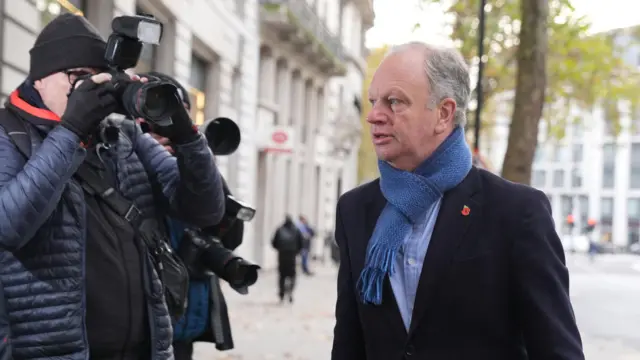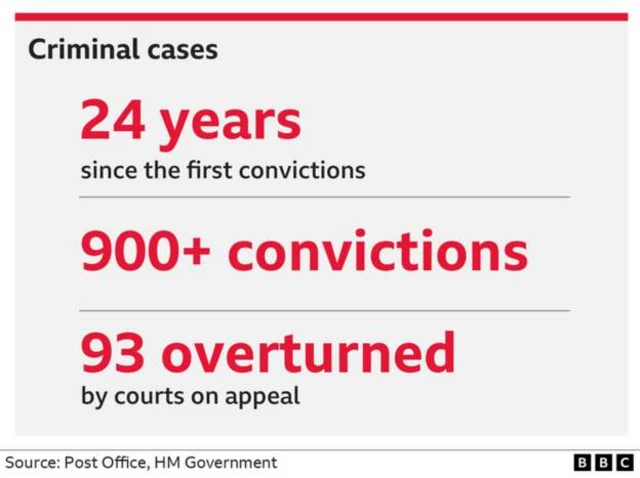Post Office governance needs to change - business secretarypublished at 11:11 GMT 11 November 2024
Jenna Moon
Reporting from the inquiry
The future of the Post Office is the next line of inquiry for Jonathan Reynolds.
How could the Post Office change to avoid a repetition of the scandal, counsel to the inquiry Justin Blake asks.
Reiterating his earlier comments, Reynolds says that the governance of the Post Office has to change.
Changes should be made to how postmasters earn their money, and to the structure of the business model to make it more sustainable.
"Those issues have to be addressed before we look to what the future is", but a lack of trust in the institution needs to be addressed, Reynolds says.
"We have to ... make sure the position of the Post Office is a long term sustainable one".

